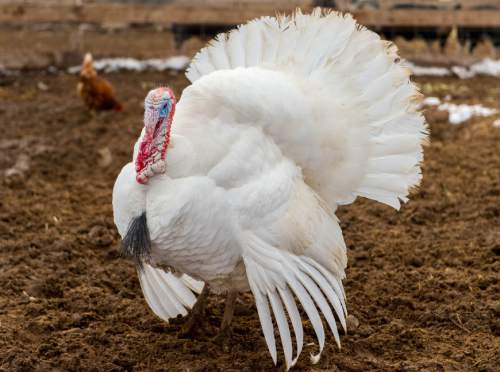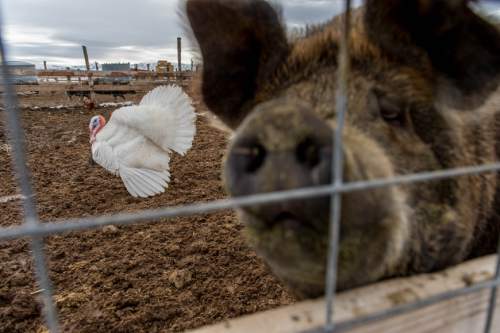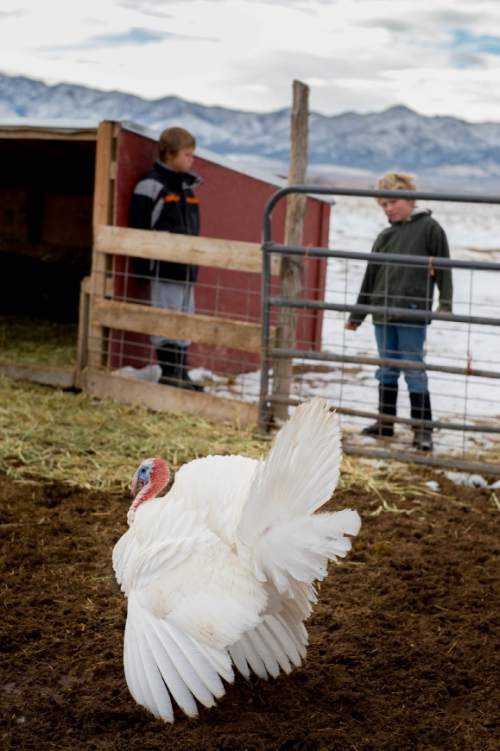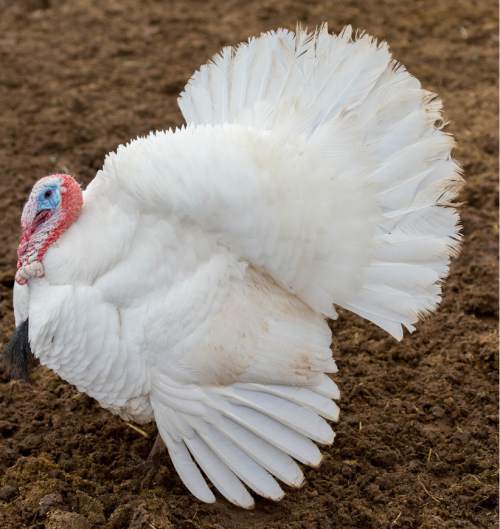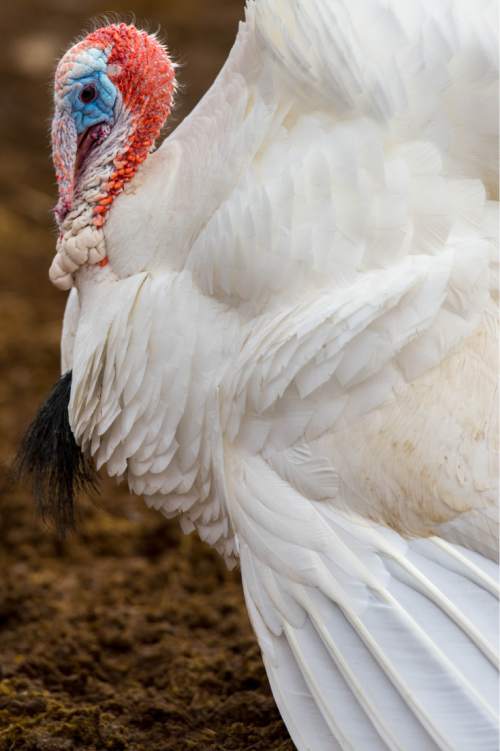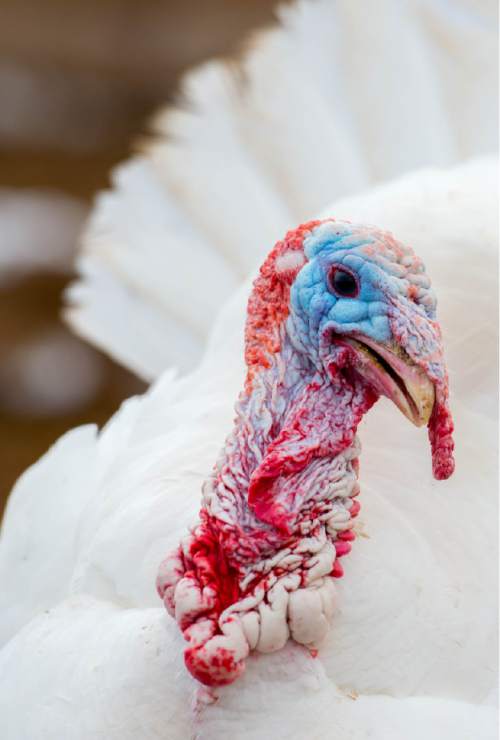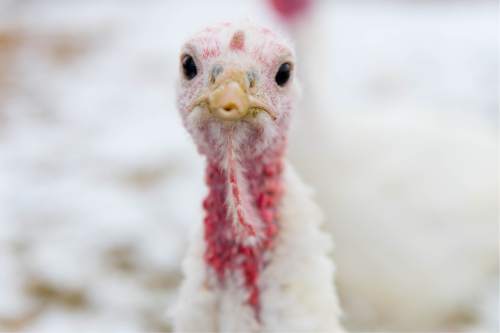This is an archived article that was published on sltrib.com in 2014, and information in the article may be outdated. It is provided only for personal research purposes and may not be reprinted.
Everyone has heard — or lived through — a story of wretched food poisoning by turkey.
But how many have heard of the noble bird's good bacteria?
Microbiologists at Brigham Young University have demonstrated how a bacteria found in turkeys excels at killing bad bacteria. An article describing their work appears in the December issue of Journal of Bacteriology.
It may be years before the discoveries made by graduate student Philip Bennallack and his BYU advisers, Rich Robison and Joel Griffitts, lead to an antibiotic for humans.
But Strain 115, as they're calling it, could target staph infections, strep throat, severe gastrointestinal diseases and roughly half of all infectious bacteria.
"I wouldn't call this a major antibiotic breakthrough yet, but it's an important step toward understanding how this underutilized antibiotic is made," Griffitts said.
The antibiotic is not water soluble and has a complicated chemical structure, but with DNA and other molecular analysis, researchers are closer to understanding how it's built, atom by atom.
The effectiveness of Strain 115 in killing bad bugs in turkeys is not new.
Retired BYU professor Marcus Jensen isolated Strain 115 more than three decades ago and developed three vaccines that Utah turkey farmers used to inoculate their birds against diseases. He set it aside in 1983 to pursue other research.
A sample of the bacteria was kept in a minus 80 degree Celsius freezer at BYU, however, and that led to some undergraduate research and Bennallack's involvement.
Proper defrosting and cooking will get rid of all bacteria, good and bad, in a Thanksgiving Day turkey, Griffitts said.
"But (people) should appreciate that by going out to the farm, we found good bacteria that might end up helping people," he said.


